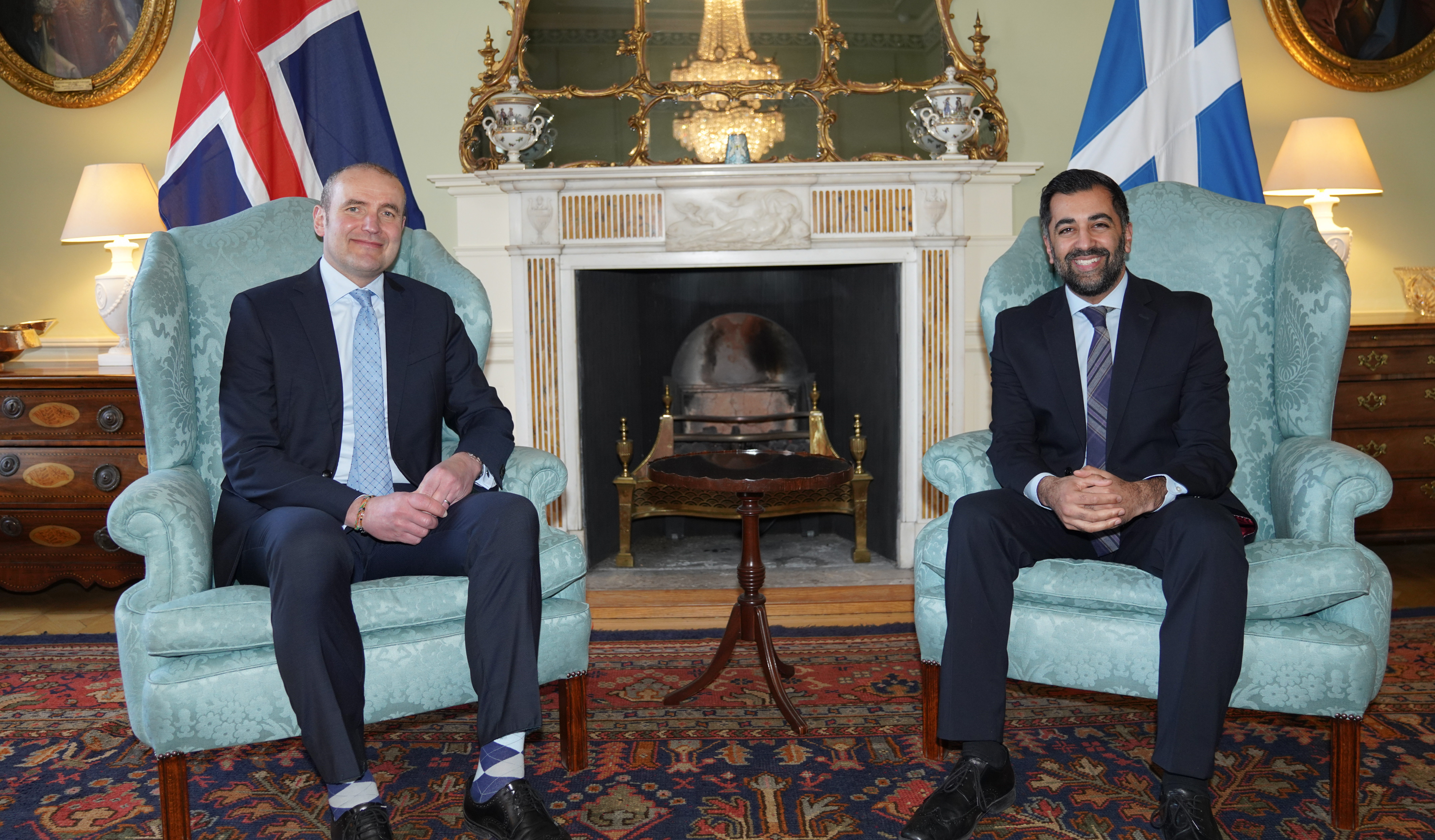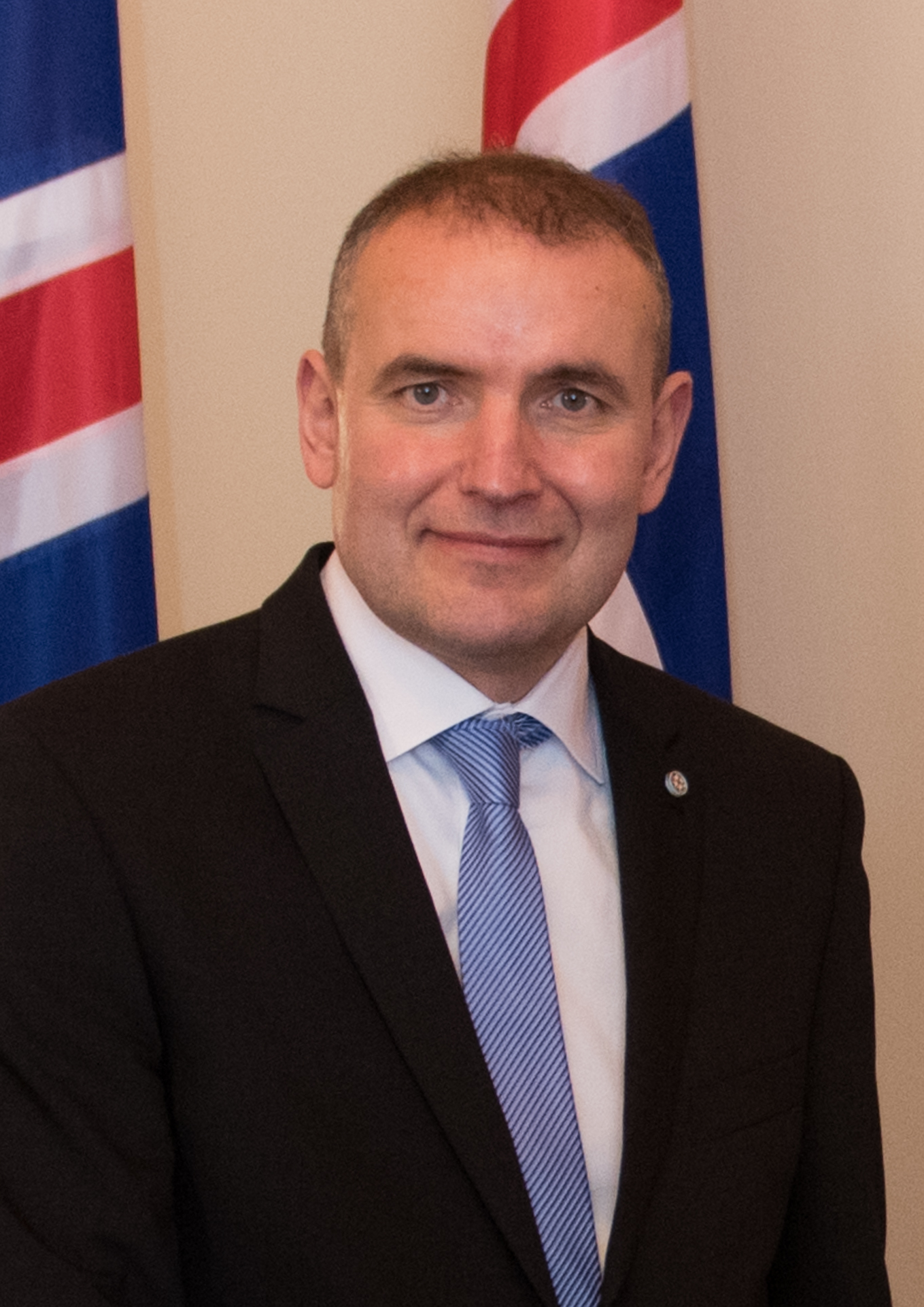1. Early life and education
Guðni Thorlacius Jóhannesson's early life and academic pursuits laid the foundation for his later career, demonstrating a strong commitment to education and a keen interest in history.
1.1. Childhood and family background
Guðni was born in Reykjavík, Iceland, on 26 June 1968. He is the son of Margrét Thorlacius, a teacher and journalist, and Jóhannes Sæmundsson, a sports instructor. His father passed away from cancer at the age of 42. Guðni has two brothers: Patrekur Jóhannesson, a former player for the Iceland men's national handball team who later coached the Austria men's national handball team and is the father of rapper JóiPé; and Jóhannes, who works as a systems analyst. In his youth, Guðni was also an active handball player, participating in the sport in both Iceland and the United Kingdom.
1.2. Education
Guðni's academic journey began at Menntaskólinn í Reykjavík (MR), a junior college in central Reykjavík, from which he graduated in 1987. During his time at MR, he showcased his intellectual prowess by competing in Gettu betur, an Icelandic team quiz show for junior college students.
He pursued higher education abroad and in Iceland, earning a bachelor's degree in history and political science from the University of Warwick in England in 1991. He then obtained a Master of Arts in history from the University of Iceland in 1997. Further expanding his linguistic and historical knowledge, he also studied German and Russian at the university level. In 1999, he completed an MSt degree in history at St Antony's College at the University of Oxford. His doctoral studies culminated in a PhD in history from Queen Mary, University of London, which he received in 2003. In recognition of his contributions, he was granted an honorary doctorate at the University of Oulu in 2024.
2. Academic and professional career
Before entering the political arena, Guðni Thorlacius Jóhannesson established a distinguished career as a historian and university lecturer, contributing significantly to the understanding of modern Icelandic history.
2.1. Historian and professor
Guðni served as a lecturer at several prominent institutions, including the University of Iceland, Bifröst University, and the University of London. At the time of his presidential candidacy, he held the position of senior lecturer in history at the University of Iceland. His primary field of research is modern Icelandic history, a subject on which he has published numerous influential works.
His publications cover a wide range of critical topics in Icelandic history, including the Cod Wars, the profound 2008-2011 Icelandic financial crisis, and an in-depth analysis of the Icelandic presidency. He authored a biography of former prime minister Gunnar Thoroddsen and a book detailing the presidency of Kristján Eldjárn, Iceland's third president. Between 1992 and 1997, Guðni also showcased his versatility by translating four works by the acclaimed American author Stephen King into Icelandic. From 2011 to 2015, he served as the president of Sögufélag, the Icelandic historical society, further solidifying his standing within the academic community.
3. Presidential candidacy
Guðni Thorlacius Jóhannesson's entry into politics was a direct response to public sentiment and a desire to contribute to national stability following a period of political turmoil.
3.1. Decision to run and campaign
Guðni announced his decision to run for president on 5 May 2016. His public profile had significantly risen prior to his candidacy due to frequent appearances on live television. In these appearances, he provided expert commentary and historical context in the wake of the Panama Papers scandal, which led to the ouster of then-Prime Minister Sigmundur Davíð Gunnlaugsson. As a scholar of the Icelandic presidency, Guðni was uniquely positioned to discuss the constitutional options available to the incumbent president, Ólafur Ragnar Grímsson, and other political actors during this period of crisis. His clear and insightful analyses resonated with the public, leading to widespread calls for him to seek the presidency himself.
His campaign platform emphasized constitutional reform, particularly supporting a citizen initiative referendum provision. Guðni positioned himself as an independent candidate, unaffiliated with any of Iceland's political parties. He publicly stated his intention to be a "less political president" than his predecessor, highlighting his non-partisanship as a key differentiator. Throughout his campaign, Guðni consistently stressed the paramount importance of unity for the small nation of Iceland.
3.2. Election results
Early polls indicated significant public support for Guðni. His popularity surged further following incumbent President Ólafur Ragnar Grímsson's decision to withdraw from the race. Subsequent polls consistently placed Guðni in the lead, with support ranging from 67% to 69%, far ahead of other contenders.
On 25 June 2016, Guðni was elected President of Iceland, securing a plurality of 39.1% of the vote, totaling 71,356 votes. His victory marked a significant moment in Icelandic politics, signaling the public's desire for a non-partisan leader focused on national cohesion.
4. Presidency of Iceland
Guðni Thorlacius Jóhannesson's presidency was characterized by a commitment to national unity, a non-political approach, and exceptionally high public approval, reflecting a strong connection with the Icelandic people.
4.1. Term and major activities
Guðni officially assumed office as the sixth President of Iceland on 1 August 2016. At 48 years old, he became the youngest president in Iceland's history. Early in his term, Guðni faced the critical task of overseeing negotiations for the formation of a new government following the 2016 Icelandic parliamentary election on 29 October. These negotiations proved challenging, as no pre-election coalition had secured a majority, and potential majority coalitions comprised parties with widely divergent policy positions. Despite the complexities, Guðni navigated this period with a steady hand, facilitating the democratic process.
His presidency was marked by a consistent focus on unity and a less partisan approach, fulfilling his campaign promise. He maintained a high level of public engagement, both domestically and internationally. In the 2020 Icelandic presidential election, Guðni was overwhelmingly re-elected with 92.2% of the vote, marking the second-largest electoral victory in Icelandic presidential history. On 1 January 2024, in his New Year's address to the Icelandic people, Guðni announced that he would not seek re-election in the 2024 Icelandic presidential election, concluding his two terms in office on 1 August 2024.
4.2. Events during presidency and public reception
Throughout his presidency, Guðni maintained exceptionally high approval ratings, unprecedented for an Icelandic politician. Just one month into his term, an MMR survey reported his approval rating at 68.6%, the highest measured for an Icelandic president by that pollster since its establishment in 2011. By December 2016, his approval rating soared to 97%, a figure virtually unseen in Icelandic politics. In April 2019, his approval rating remained remarkably high at 93.5% among those who expressed an opinion in a survey.

One notable incident that garnered international attention occurred in February 2017, when Guðni jokingly expressed his desire to ban pineapple as a pizza topping. This lighthearted comment went viral, showcasing his approachable public persona and ability to connect with people on a relatable level, further contributing to his widespread popularity.

5. Personal life
Guðni Thorlacius Jóhannesson's personal life reflects his values and background, including his ethical framework, strong family ties, and interesting ancestral connections.
5.1. Religious beliefs
Although Guðni was raised in the Catholic faith, he currently stands outside organized religion. He made the decision to leave the Catholic Church due to his dissatisfaction with its delayed and muted response to reports of criminal abuses by priests. His personal ethical framework is deeply rooted in the principles of the Universal Declaration of Human Rights. He adheres to the belief that "human beings are born free, equal in dignity and rights. Humans are endowed with reason and conscience and should act in the spirit of brotherhood towards each other." This credo underscores his commitment to universal human values and justice.
5.2. Family
Guðni is the son of Margrét Thorlacius, a teacher and journalist, and Jóhannes Sæmundsson, a physical education teacher and coach. His father passed away from cancer at the age of 42. He has two brothers: Patrekur, a former player for the Iceland men's national handball team who later coached the Austria men's national handball team and is the father of rapper JóiPé; and Jóhannes, who works as a systems analyst.
Guðni married Canadian Eliza Jean Reid in 2004. The couple met while studying in the United Kingdom and subsequently moved to Iceland in 2003. They have four children together. Upon Guðni's inauguration, Eliza Reid became the First Lady of Iceland. Guðni also has a daughter from a previous marriage.
5.3. Ancestry
Guðni Thorlacius Jóhannesson has notable distant familial connections. He is distantly related to former US president Barack Obama, with their connection tracing back as 24th cousins 8 times removed through Obama's Scottish ancestry. Furthermore, Guðni shares ancestry with former US president Donald Trump, with both being descendants of Haakon V of Norway.
6. Publications
Guðni Thorlacius Jóhannesson is a prolific author of historical works, primarily focusing on Icelandic history.
6.1. Books
His significant contributions to historical scholarship include:
- Kári í jötunmóð. Saga Íslenskrar erfðagreiningar og Kára Stefánssonar (Reykjavík: Nýja bókafélagið, 1999).
- Völundarhús valdsins. Stjórnarmyndanir, stjórnarslit og staða forseta Íslands í embættistíð Kristjáns Eldjárns, 1968-1980 (Reykjavík: Mál og menning, 2005). This work examines government formations, dissolutions, and the position of the Icelandic president during Kristján Eldjárn's term.
- Óvinir ríkisins. Ógnir og innra öryggi í kalda stríðinu á Íslandi (Reykjavík: Mál og menning, 2006). Titled Enemies of the State, this book investigates threats and internal security in Iceland during the Cold War, particularly after Iceland joined NATO in 1949 and the U.S. established an air base near Keflavík in 1951. It was nominated for the Icelandic Book Prize in 2006.
- Þorskastríðin þrjú. Saga landhelgismálsins 1948-1976 (Reykjavík: Hafréttarstofnun Íslands, 2006). This book details the three Cod Wars, focusing on the history of Iceland's territorial waters.
- Hrunið: Ísland á barmi gjaldþrots og upplausnar (Reykjavík: JPV, 2009). Titled The Collapse: Iceland on the Verge of Bankruptcy and Dissolution, this book analyzes the 2008-2011 Icelandic financial crisis.
- Gunnar Thoroddsen - Ævisaga (Reykjavík: JPV, 2010). This is a biography of former Icelandic prime minister Gunnar Thoroddsen.
- Fyrstu forsetarnir. (Reykjavík: Sögufélag, 2016).
- Stund milli stríða. Saga landhelgismálsins, 1961-1971 (Reykjavík, 2022). This book, presented on the 50th anniversary of the 1972 skirmish, further explores the Cod Wars period.
6.2. Translations
Beyond his original historical works, Guðni also contributed to Icelandic literature through his translations. Between 1992 and 1997, he translated four books by the renowned American horror and suspense novelist Stephen King into Icelandic.
7. Honours and awards
Guðni Thorlacius Jóhannesson has received numerous national and international honours and awards throughout his distinguished career, recognizing his contributions and service.
7.1. National Honours
- Iceland: Grand Master and Grand Cross with Collar of the Order of the Falcon (1 August 2016).

7.2. Foreign Honours
- Denmark: Knight of the Order of the Elephant (24 January 2017).

- Finland: Grand Cross with Collar of the Order of the White Rose of Finland (31 May 2017).

- Germany: Grand Cross Special Class of the Order of Merit of the Federal Republic of Germany (12 June 2019).

- Latvia: Commander Grand Cross with Chain of the Order of the Three Stars (16 November 2018).

- Norway: Grand Cross of the Order of St. Olav (21 March 2017).

- Sweden: Knight of the Royal Order of the Seraphim (17 January 2018).

- Sweden: Recipient of the Commemorative Golden Jubilee Medal of His Majesty The King (15 September 2023).
